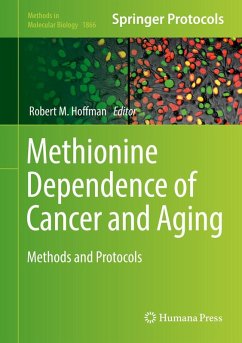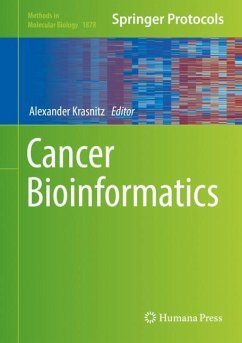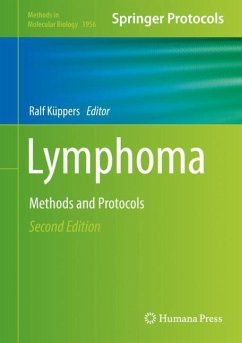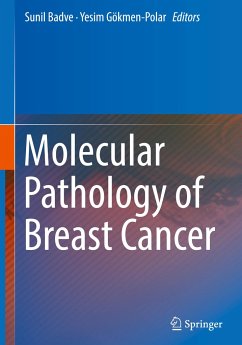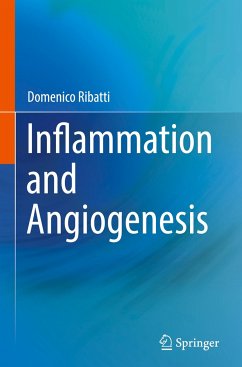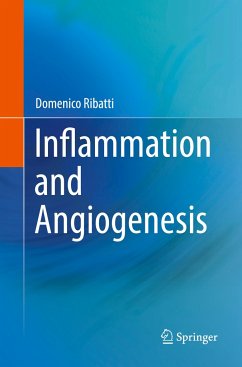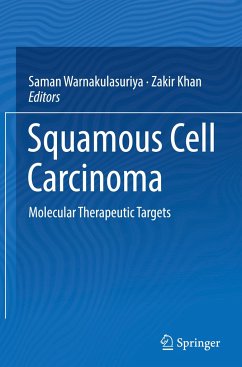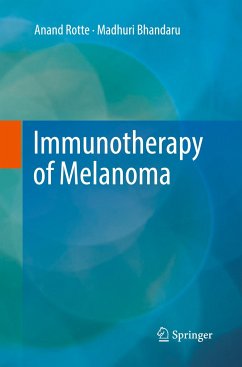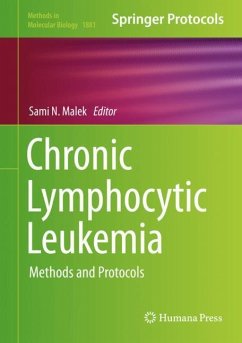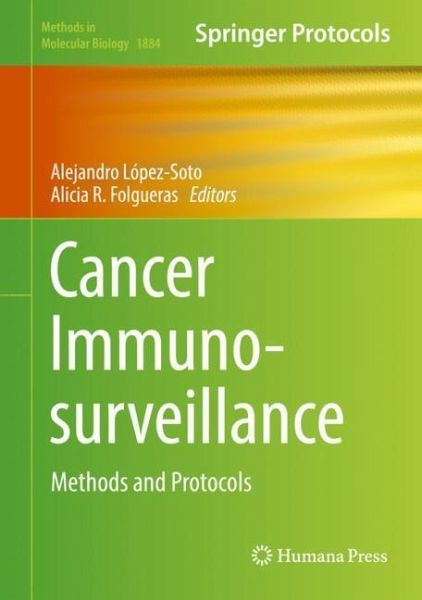
Cancer Immunosurveillance
Methods and Protocols
Herausgegeben: López-Soto, Alejandro; Folgueras, Alicia R.

PAYBACK Punkte
57 °P sammeln!
This volume explores the latest techniques used to study tumor immunology. The chapters in this book detail methodologies for functional analysis and expansion of T lymphocytes for cancer research. The chapters also cover topics such as how single-cell RNA-sequencing can be exploited to dissect immune cell heterogeneity and precursors; isolating and expanding natural killer (NK) cells; evaluating NK cell-mediated anti-tumor killing activity in vitro; immunosurveillance orchestrated by specific immune subsets; use of HLA peptidomics for cancer-exome based identification of tumor neo-antigens; g...
This volume explores the latest techniques used to study tumor immunology. The chapters in this book detail methodologies for functional analysis and expansion of T lymphocytes for cancer research. The chapters also cover topics such as how single-cell RNA-sequencing can be exploited to dissect immune cell heterogeneity and precursors; isolating and expanding natural killer (NK) cells; evaluating NK cell-mediated anti-tumor killing activity in vitro; immunosurveillance orchestrated by specific immune subsets; use of HLA peptidomics for cancer-exome based identification of tumor neo-antigens; gold standard assessment of immunogenic cell death in oncological mouse models and methods to look at the therapeutic relevance of immune modulation in cancer. Written in the highly successful Methods in Molecular Biology series format, chapters include introductions to their respective topics, lists of the necessary materials and reagents, step-by-step, readily reproducible laboratory protocols, and tips on troubleshooting and avoiding known pitfalls.
Cutting-edge and thorough, Cancer Immunosurveillance: Methods and Protocols is a valuable resource to aid researchers in better understanding and experimenting in this exciting and developing field.
Cutting-edge and thorough, Cancer Immunosurveillance: Methods and Protocols is a valuable resource to aid researchers in better understanding and experimenting in this exciting and developing field.



